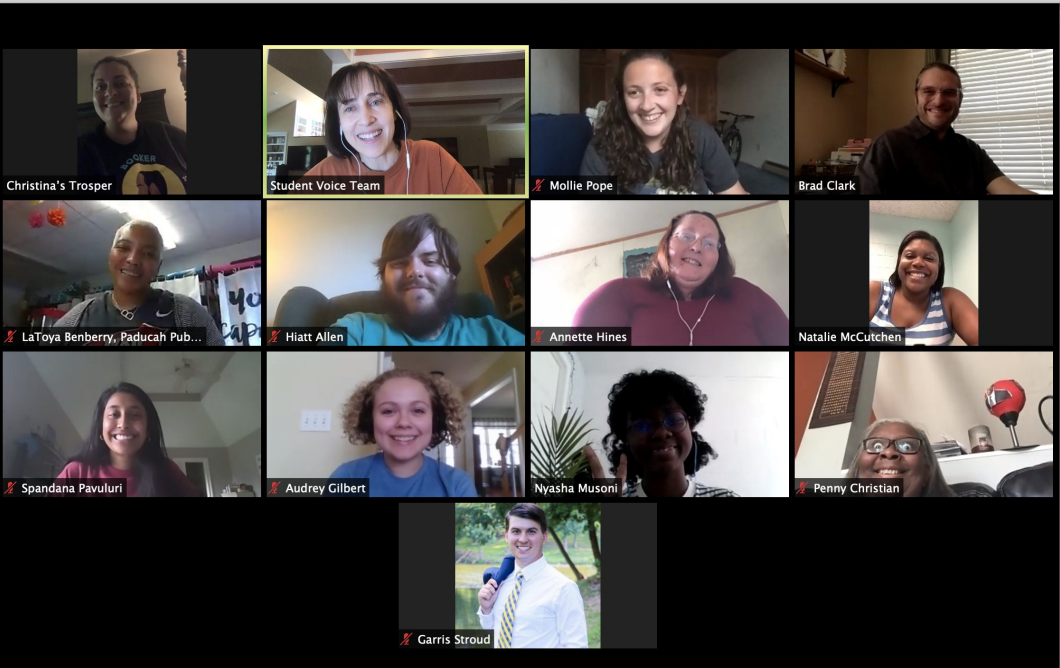Students usually are included with parents and teachers in the proverbial three-legged stool.
In reality these stakeholders, who represent 92 percent of the K-12 population, are excluded from deliberations on most every consequential education issue. One innovative intergenerational research model puts students on equal footing.
“Intergen 9” is the revealing name chosen by the researchers who produced the revealing Coping with COVID Teacher and Family Study.
The age range of this racially diverse research team consisted of three parents, three teachers, and three students representing eight school districts across Kentucky. Additional support came from the Prichard Committee for Academic Excellence, including another trio of facilitators.
Over 2,000 completed the survey and interviews were conducted with parents, grandparents, and teachers of children with special needs. The data led the “Intergen 9” to advocate for several policies such as “Create more internet hot spots, especially in rural areas that are under served.”
In the words of Garris Stroud, one of the “Intergen 9” teachers:
Our collaboration as teachers, parents, and students resulted in findings that were meaningful and actionable–an impressive feat for non-professional researchers. I am excited to see additional community-based, co-design processes develop in the future and continue to prove their value.
Another key point emphasized by Audrey Gilbert, one of the high school student researchers:
I think that what’s so excellent about this intergenerational model is that you had three groups of stakeholders that could’ve all disagreed on everything and advocated for only their side of the issue. Instead, we all came together to say these issues are an issue for all of us. If all these groups of stakeholders work together, we have a bigger impact than working separately.
School systems across the country will find relevance in the revelations and recommendations summarized in Coping with COVID. It is important to recognize that the research team, including the students, received compensation for their time and Seek Common Ground helps to establish this norm. Moreover, this participatory action research illustrates that the three-legged stool cannot stand up without these primary stakeholders.
It is time for young people who are contributing their time and expertise to be paid. This policy should be non-negotiable both by grantors and grantees. We are keen to hear your reaction about this intergenerational model and also the controversial issue of compensation.
We also want to highlight equally significant research by the Prichard Committee Student Voice Team that was co-designed by students and adult research advisors. Coping with COVID Student-to-Student Study reflects data based on nearly 9,500 students from across the state.
Please share your comments below and/or contact us so we can continue the discussion together!

